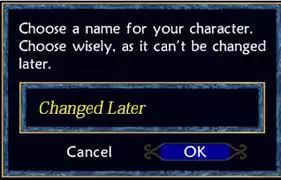
✅ AI Essay Writer ✅ AI Detector ✅ Plagchecker ✅ Paraphraser
✅ Summarizer ✅ Citation Generator
Hi everyone.
 Have you ever played role-playing video games? If yes, then you know the pain of adjusting your character’s appearance and, what is even more important, naming them. The same, or perhaps even bigger pain is naming a literary character.
Have you ever played role-playing video games? If yes, then you know the pain of adjusting your character’s appearance and, what is even more important, naming them. The same, or perhaps even bigger pain is naming a literary character.
There already was a blog post dedicated to character naming published here. Its main idea was, “Avoid fancy character names when not needed.” This is definitely a reasonable approach, although one question still remains: how to give a character a name that would sound natural, and would suit this person?
I don’t know how to make this process easy, but fortunately there are some recommendations that can help you get through naming with minimal losses:
- A name is not the first, but rather one of the last things you should attribute your character with. As far as I know, this trick works for many writers, including myself; in the first draft, my characters usually go as N., Mr. S., John, and so on. After I finish the first draft, I change the names to something more appropriate.
- Before you give your character a name, you must know his or her ethnicity and origins. You can’t name a Chinese person “Billy Smith.” Well, you can, and in real life, there are many people whose names do not correspond with their ethnicity, but in literature, a name is a part of a character’s description. When you see distinctive names like Zhao Cheung or Yuri Kravichev, your imagination adds to the general description of a character, making it more alive. The same works for English names: a name like Annabelle Wordsworth, for example, creates an image of a lady, and the name Jenny (but not “Jennifer”) Smith, of a modern, most likely a young, ordinary woman.
- You should also consider the period of time the events described in your story occur. Victorian Britain, medieval times, present days city, or a megalopolis of the distant future—each epoch has its own distinctive names.
- Check whether a character’s name corresponds with his or her personality, his or her role in your story, and so on. Remember Rick Deckard from “Blade Runner?” Ellen Ripley from “The Alien?” and Forrest Gump from “Forrest Gump?” These, as well as many other distinctive and memorable characters, possessed names that suited them. This is probably the most difficult part to work on, though.
- Sometimes, when you feel you’re stuck, two radical approaches might help you out. These are extreme measures for extreme times, so use them with caution. The first one is using a random name generator. You can find one of them here; insert your character’s characteristics, such as gender and ethnicity, and the generator will do the rest. This might work well for secondary characters.
The second way is to think about the meanings of names; for example, “Bianca” means “blonde,” “Adam” means “a man,” and so on. You can find the meanings of different names online. Such names sound somewhat artificial, but they can still work at least as a temporary substitute.
With these tips, you will be able to name your characters decently. Good luck!
Follow us on Reddit for more insights and updates.




Comments (0)
Welcome to A*Help comments!
We’re all about debate and discussion at A*Help.
We value the diverse opinions of users, so you may find points of view that you don’t agree with. And that’s cool. However, there are certain things we’re not OK with: attempts to manipulate our data in any way, for example, or the posting of discriminative, offensive, hateful, or disparaging material.